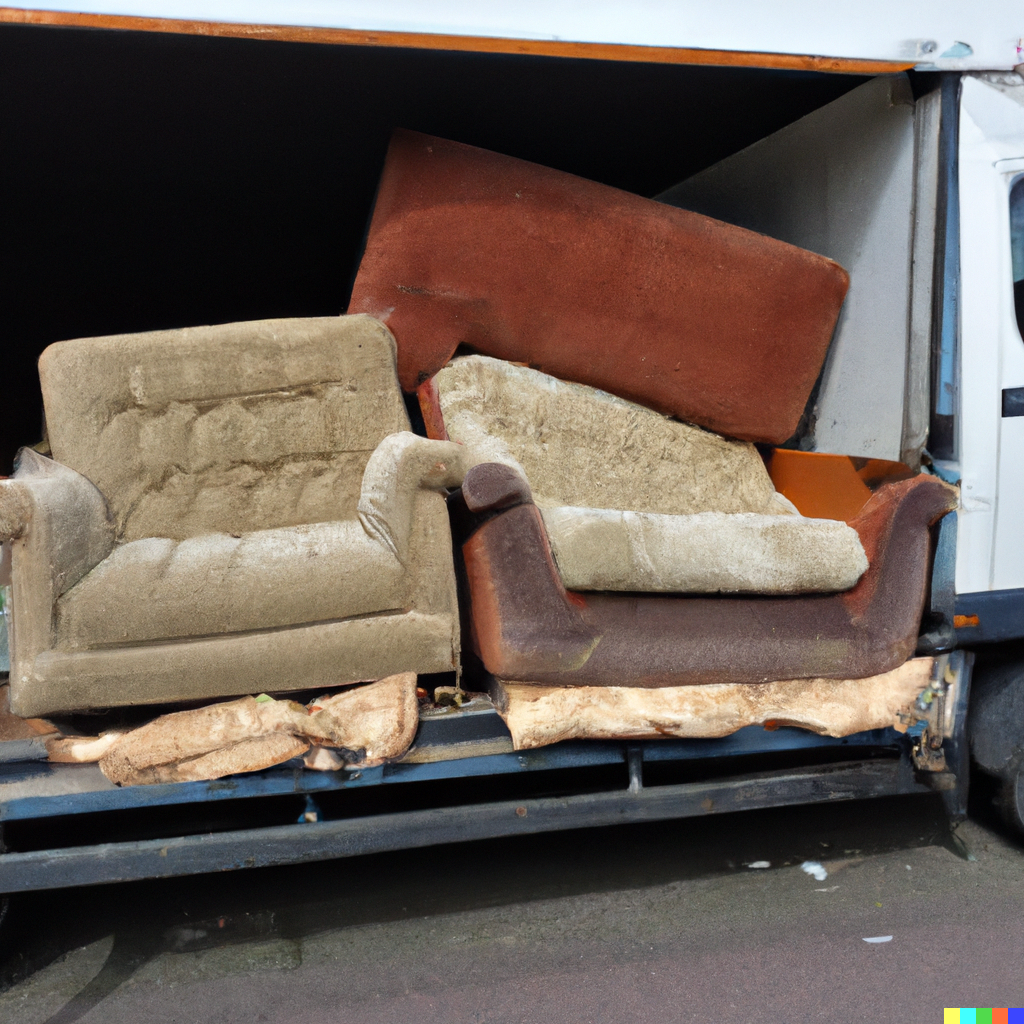The Scottish Environmental Protection Agency (SEPA) is expected to publish the guidance later this month. However, councils in Scotland were advised in July that once introduced, the guidance will immediately ban any upholstered furniture or waste being sent to landfill, as well as waste that has been mixed with upholstered furniture.
In a report which went before the council last week, Highland council explained that under its existing arrangements, HWRC waste is sent to landfill.
This would mean that once the guidance is released, all non-recyclable waste collected at HWRCs and that managed in smaller waste transfer stations would be considered as POPs contaminated and hence would need to be diverted from landfill.
The council explained there are no local facilities that would be able to treat upholstered furniture, so it has announced that nine of the 21 HWRCs in the region without space to separate soft furnishings will prohibit them from being brought to the site. Residents will be directed to alternative sites or to use the bulky waste collection service.
The bulky waste collection service will continue to be provided as normal as these can separate upholstered furnishings at the point of collection.
For the remaining 12 sites, a skip container will be allocated so that residents can separate their uphulstered furniture. It is intended that there will be at least one site in each region of Highland, the report said.
‘Obligation’
Cllr Graham MacKenzie, chair of the communities and lace committee, at the council, commented: “The upcoming legislation from SEPA is concerned with the negative impacts of Persistent Organic Pollutants on animals, humans and the environment. In mitigation, this legislation will place an obligation upon local authorities to divert these types of waste away from landfill to prevent bioaccumulation.
He continued: “Centres that do not have adequate space to accommodate an additional skip container for this purpose will stop accepting upholstered furniture from the time of implementation.
“However, members of the public should be reassured that the bulky waste collection service will continue to be provided as normal and operatives will separate upholstered furnishings at the point of collection.”

Treatment
The report explained that collected upholstered furnishings and other waste contaminated with POPs will be directed to either the Waste Transfer Station at the Seater Landfill or Longman.
The waste will then be bulked up at these two sites prior to them being sent for treatment. It is likely it will be sent to Viridor’s Dunbar energy from waste facility, as Highland council signed a £58 million contract with them last year, though this was not confirmed.
The council said a cost increase is expected due to increased haulage costs, a greater distance to the treatment facilities that can manage POPs and increased treatment costs when compared to the existing landfill solution.
Highland council also said it will progress procuring shredders to allow such Upholstered Furniture to be managed in a more efficient manner (e.g., to maximise payloads).
However, these are not currently expected to be available until the end of 23/24.









Subscribe for free